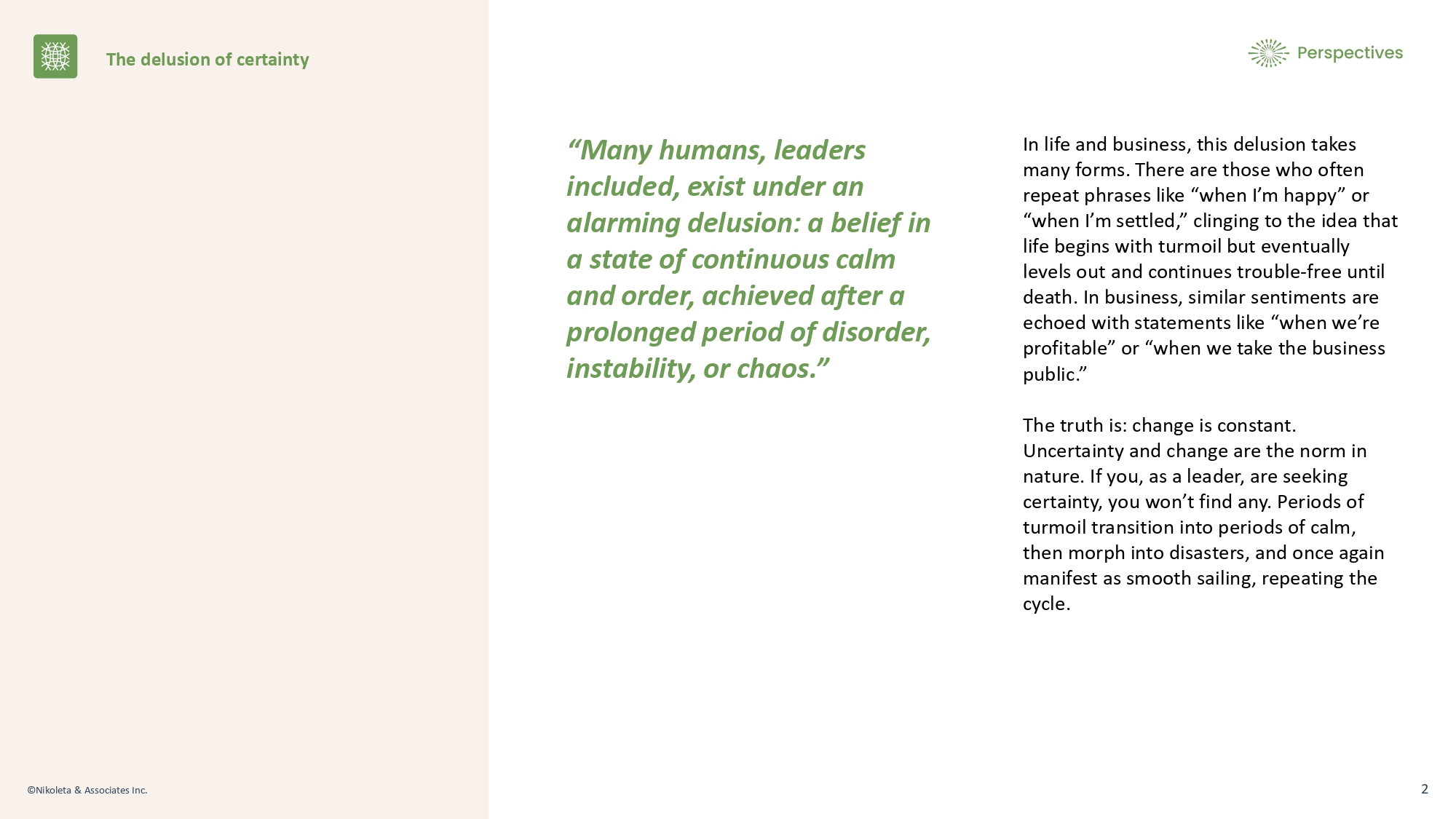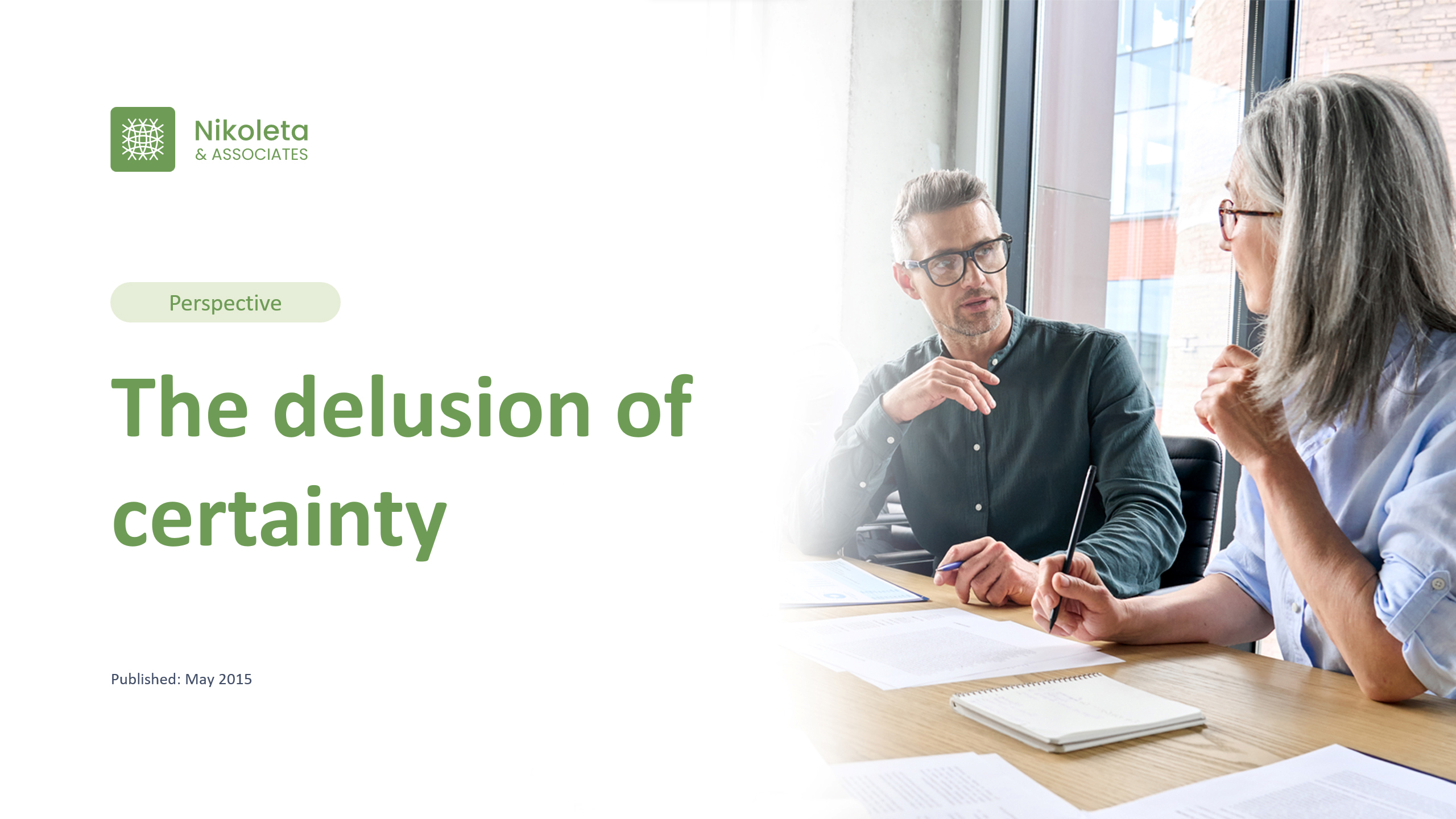Perspective
The delusion of certainty


Many humans, leaders included, exist under an alarming delusion: a belief in a state of continuous calm and order, achieved after a prolonged period of disorder, instability, or chaos.
In life and business, this delusion takes many forms. There are those who often repeat phrases like “when I’m happy” or “when I’m settled,” clinging to the idea that life begins with turmoil but eventually levels out and continues trouble-free until death. In business, similar sentiments are echoed with statements like “when we’re profitable” or “when we take the business public.”
The truth is: change is constant. Uncertainty and change are the norm in nature. If you, as a leader, are seeking certainty, you won’t find any. Periods of turmoil transition into periods of calm, then morph into disasters, and once again manifest as smooth sailing, repeating the cycle.
What does this mean for leaders?
Waking up to the reality of change can be a challenging experience, but understanding the unending nature of change strengthens a leader’s resilience. They perceive business as a process, a series of cycles, rather than something to get right and walk away from. Importantly, certain leaders are better suited for specific business cycles. A leader who grasps this concept is more likely to navigate their career effectively.
From a business perspective, a leader who grounds themselves in the reality of change will prepare effectively for both victories and setbacks. They will know when it’s time to let go of a product, service, employee, or partner. They will give new innovations or ideas sufficient time to develop, and they will be more adept at keeping the team together during crises.
Change evokes fear, and that’s alright. Fear isn’t going away anytime soon. It’s high time to retire the myth of the fearless leader. What truly adds value to firms is a leader who feels the fear surrounding the uncertainty of change—the dreaded ‘what if’—yet continues moving forward, one step at a time.















